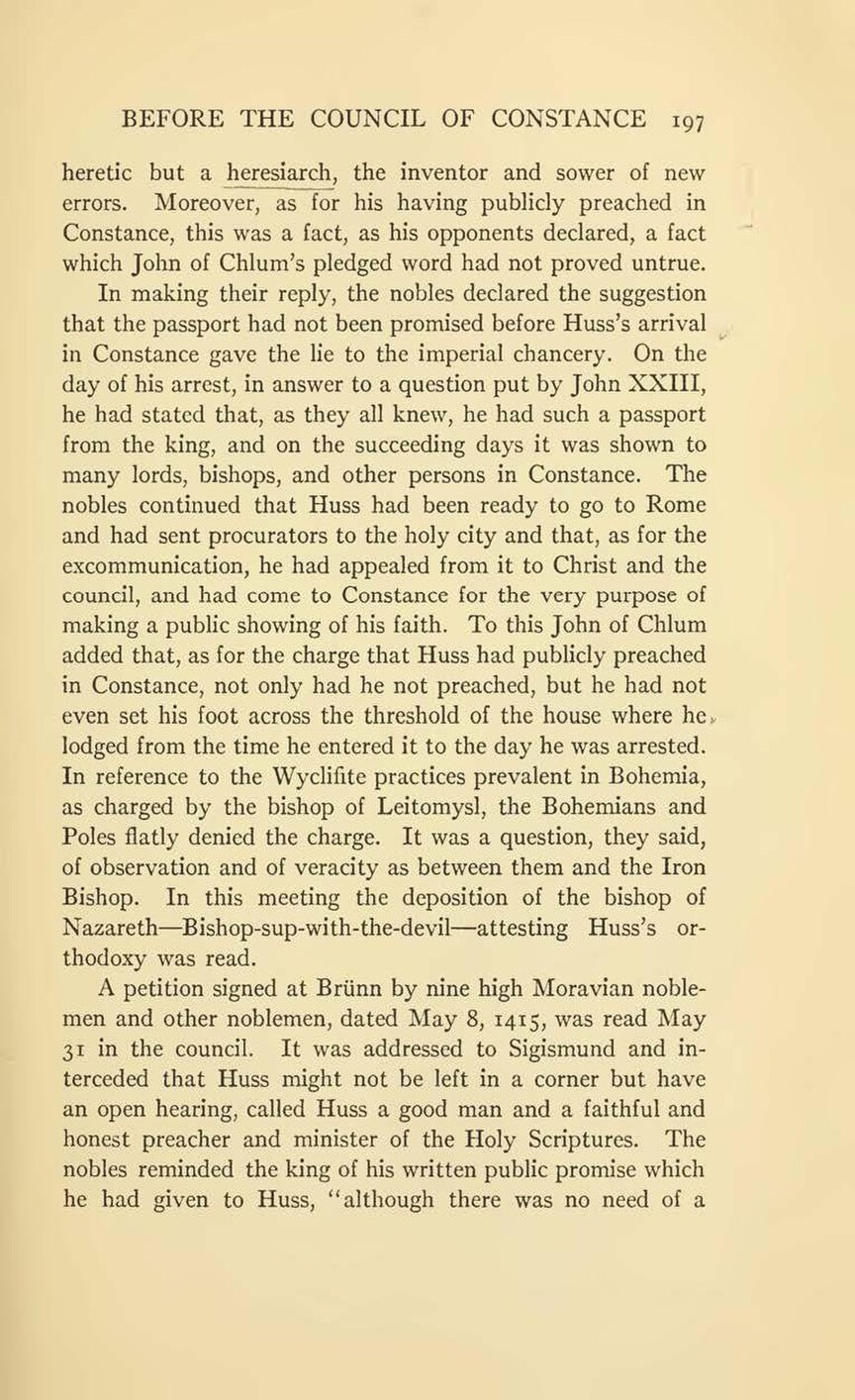heretic but a heresiarch, the inventor and sower of new errors. Moreover, as for his having publicly preached in Constance, this was a fact, as his opponents declared, a fact which John of Chlum’s pledged word had not proved untrue.
In making their reply, the nobles declared the suggestion that the passport had not been promised before Huss’s arrival in Constance gave the lie to the imperial chancery. On the day of his arrest, in answer to a question put by John XXIII, he had stated that, as they all knew, he had such a passport from the king, and on the succeeding days it was shown to many lords, bishops, and other persons in Constance. The nobles continued that Huss had been ready to go to Rome and had sent procurators to the holy city and that, as for the excommunication, he had appealed from it to Christ and the council, and had come to Constance for the very purpose of making a public showing of his faith. To this John of Chlum added that, as for the charge that Huss had publicly preached in Constance, not only had he not preached, but he had not even set his foot across the threshold of the house where he lodged from the time he entered it to the day he was arrested. In reference to the Wyclifite practices prevalent in Bohemia, as charged by the bishop of Leitomysl, the Bohemians and Poles flatly denied the charge. It was a question, they said, of observation and of veracity as between them and the Iron Bishop. In this meeting the deposition of the bishop of Nazareth—Bishop-sup-with-the-devil—attesting Huss’s orthodoxy was read.
A petition signed at Brünn by nine high Moravian noblemen and other noblemen, dated May 8, 1415, was read May 31 in the council. It was addressed to Sigismund and interceded that Huss might not be left in a corner but have an open hearing, called Huss a good man and a faithful and honest preacher and minister of the Holy Scriptures. The nobles reminded the king of his written public promise which he had given to Huss, “although there was no need of a
